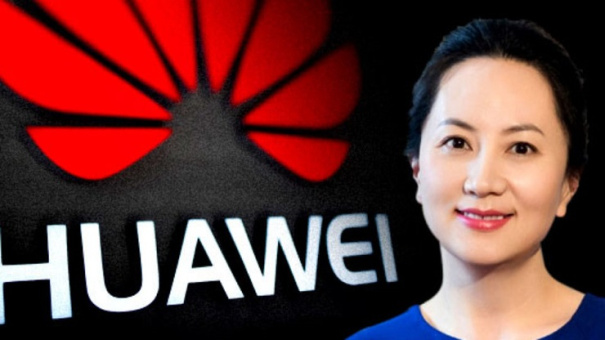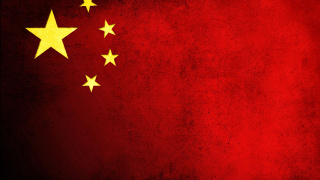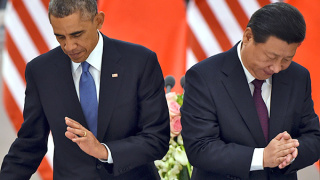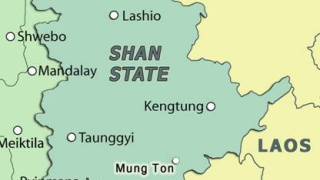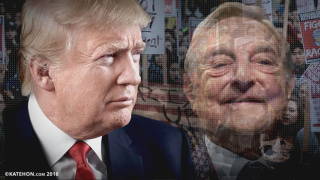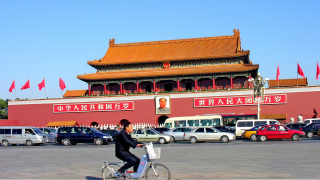Is Canada Huawei Arrest Attempt to Sabotage Trump Xi Talks?
The arrest of the CFO of the China’s largest telecoms equipment company, Huawei, carries hallmarks of deep state or behind-the-scenes sabotage designed to rupture recent progress between US President Trump and China President Xi Jinping on strategic issues. Here are some elements of the case that smack of insider sabotage from the US side, with complicity of Five Eyes member Canada .
After months of trade tariff clashes between USA and China, US President Donald Trump met with China President Xi Jinping during the Buenos Aires G-20 Summit. There the two issued a positive joint statement in which it was stated that the US on January 1 will impose a “cease-fire” and freeze current tariffs at 10% on the $200 billion of Chinese imports to the US, not raising it to 25% as scheduled. For his part, Xi agreed to resume buying US soybeans and other agriculture and energy products to cut the trade imbalance. Most interesting and little-discussed in western media coverage, on the US request, Xi also agreed to list the controversial chemical Fentanyl as a Controlled Substance, meaning that people selling Fentanyl to the United States will be subject to China’s maximum penalty under the law.
As well, they agreed to immediately begin negotiations on key US issues including forced technology transfer, intellectual property protection, non-tariff barriers, cyber intrusions and cyber theft, services and agriculture to be completed within 90 days or face resumption of the planned 25% tariff raise.
The offer by Xi to control Fentanyl, one of the most deadly synthetic drugs that has caused tens of thousands of deaths in the USA, was notable. According to U.S. law enforcement and drug investigators, China is the main supplier of fentanyl to the United States. There criminal organizations mix the Fentanyl powder with heroin. Also according to the US DEA, China companies ship Fentanyl to key points in Canada and Mexico. From Mexico it is usually repackaged by the Mexican drug cartels and smuggled into the US.
Canada Surprise?
In other words China had agreed to open strategic issues in bilateral relations that could have major positive implications for resolving the trade conflicts and other issues not public. On December 5 in Vancouver Canadian authorities arrested Meng Wanzhou, the CFO and board member of China’s Huawei Technologies Co Ltd. She is also daughter of the founder and CEO.
The arrest, reportedly on charges of illegal activities in regard to US sanctions on Iran, is unprecedented. In August the US President signed an order banning Huawei hardware in US government communications networks on grounds of national security. Huawei is at the heart of China’s vigorous effort to dominate the emerging 5G communications networks. The company is today the world’s second largest smartphone maker after Samsung and ahead of Apple and the world’s largest manufacturer of telecom network equipment with $92 billion in sales. US President Trump in August authorized a ban on the company’s hardware in US government networks, citing national security concerns – particularly in relation to the rollout of 5G networks.
That there has been growing conflicts between China and Washington over Huawei is clear. What is bizarre about the Canadian arrest of Meng, now on bail and awaiting extradition to the US, is the fact that it took place on the same day Trump and Xi in Buenos Aires were engaged in critical trade talks. According to Trump National Security adviser, John Bolton, the President was not informed beforehand of the Canadian arrest plan.
Whatever the case with many charges of hidden espionage devices embedded in Huawei technology, or Iran sanctions violations, the Canadian arrest of CFO Meng Wanzhou is having explosive consequences inside China. The CCP People’s Daily, in an editorial, wrote on December 9, “To treat a Chinese citizen like a serious criminal, to roughly trample their basic human rights, and to dishonor their dignity, how is this the method of a civilized country? How can this not make people furious?”
In an unusual step, in the midst of the fray, Donald Trump announced that if necessary to conclude positive China trade talks, he would be ready to intervene with the US Justice Department into the controversy. On December 12 in a Reuters interview Trump stated, “Whatever’s good for this country, I would do. If I think it’s good for what will be certainly the largest trade deal ever made – which is a very important thing – what’s good for national security – I would certainly intervene if I thought it was necessary.”
Beijing Response
So far there are more unanswered questions than answers. However, it appears that Beijing is being extremely careful not to allow the affront–ordinarily a huge face loss for the Chinese to have one of their national champion company senior people treated so–to disrupt relations with the Trump Administration. Rather than retaliate by going after the many top US executives in China, it arrested a former Canadian diplomat in Beijing on suspicion of “endangering national security,” as well as a Canadian entrepreneur with business ties to North Korea.
The connections of that former Canadian diplomat are more than interesting.
Michael Kovrig previously worked as a Canadian diplomat in Beijing, Hong Kong and the United Nations. Chinese national security police took him into custody on December 10 in Beijing. Kovrig is officially listed as “North East Asia adviser” for something called the International Crisis Group.
The International Crisis Group is an NGO with a knack for being involved in key conflict zones such as Myanmar. The magazine Third World Quarterly in a peer-reviewed article in 2014 accused the ICG of “manufacturing” crises.
It was founded by Trump nemesis and Hillary Clinton supporter, George Soros. The Trustees of Kovrig’s employer, the International Crisis Group, include some very notable names. One is of course founder and funder, George Soros. Another trustee is a Canadian billionaire, Frank Guistra. Make a note of the name as it is likely to appear in the news in coming weeks as details emerge of FBI and other US investigations into illegal or shady dealings of the tax-exempt Clinton Foundation. Frank Giustra President & CEO, Fiore Financial Corporation, is a big donor to the Clinton Foundation where he also sits on the board.
His Giustra Foundation works with Elevate Social Businesses, formerly Clinton Giustra Enterprise Partnership, the International Crisis Group, Global Refugee Sponsorship Initiative, and other partners. Guistra’s UrAsia Energy Ltd. appears in the investigation of the infamous Uranium One scandal during Hillary Clinton’s term as Secretary of State, which some believe is the real “Russiagate” scandal. Soon we will know more as litigation in the US proceeds.
In sum, it appears that Xi Jinping has chosen a highly interesting target for retaliation in the Canadian arrest of Huawei’s CFO. To date it appears that, if it were the aim of certain dark networks in US and Canadian governments and intelligence to sabotage any constructive USA-China dialogue by the unprecedented arrest of the Huawei senior executive, it may have backfired. The next weeks will tell more.
F. William Engdahl is strategic risk consultant and lecturer, he holds a degree in politics from Princeton University and is a best-selling author on oil and geopolitics, exclusively for the online magazine “New Eastern Outlook”
